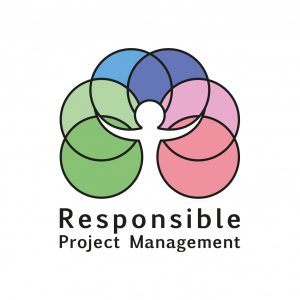
A team led by Dr Karen Thompson from Bournemouth University Business School and Dr Nigel Williams, Reader of Project Management at the University of Portsmouth, have been developing the concept of Responsible Project Management (RPM). Their work has now been recommended for Government projects.
In written evidence to the HOUSE OF COMMONS PUBLIC ADMINISTRATION AND CONSTITUTIONAL AFFAIRS SELECT COMMITTEE, the Chartered Body for the Project Profession in the UK – the Association for Project Management (APM) – suggested that the UK Government should “focus on Responsible Project Management”.
The APM’s submission to the Select Committee and included in their July 2020 Report ‘Delivering the Government’s infrastructure commitments through major projects’ used the definition from the Guide to Responsible Project Management (2019) published by BU:
“Responsible Project Management … is the concept of managing projects with specific attention to the intended and unintended impacts of the project and its outcomes, in both the short and long term, thereby delivering economic, social and environmental impact.”
Interest in Responsible Project Management (RPM) has been growing rapidly. An initial social learning workshop was held at BU in 2018 and brought together professional project managers, educators, researchers and project management students from universities across the UK and Europe to explore the concept. The Manifesto for Responsible Project Management was developed in 2019 and launched at BU in July. Later in July, Karen and Nigel were guest bloggers for UK Major Projects Knowledge Hub and wrote for the International Project Management Association Blog. In November, Sir Peter Bonfield, Vice Chancellor of the University of Westminster introduced the London launch of the Manifesto and signed up to RPM. At the 2019 Awards of the largest global professional body for project management – the Project Management Institute (PMI) – the work was recognised with the UK Award for Innovation in Project Management and the UK Award for Community Advancement (Social Good).
By February 2020 there were more than 100 signatories to the Manifesto from across the UK, Europe and USA, and the team were receiving invitations to deliver sessions at conferences and at branch events of both APM and PMI.

Signing ceremony at Gleeds, London
Early in March 2020 the team were invited to deliver a presentation at the London office of Gleeds, Global Property and Construction Consultants. This was followed by a corporate signing ceremony where the Manifesto was signed by Graham Harle, Gleeds Global Chief Executive, representing c2,000 project professionals.
Responsible Project Management is underpinned by the UN’s 17 Sustainable Development Goals and incorporates the UN’s Principles of Responsible Management Education (PRME) to which the BU Business School is an Advanced Signatory. RPM now has 16 Ambassadors worldwide.
The RPM Team have recently been awarded HEIF-6 funding to study the competencies required for sustainable project behaviour using virtual reality and will work with colleagues in BU’s Faculty of Science and Technology on this project.
Since the UK lockdown for COVID-19 RPM work has continued virtually. From April until July the Team hosted a regular series of virtual ‘Lunch and Learn’ Meetups to support project professionals around the world. Currently they are collaborating with a range of project organisations on developing a Guide for Project Sponsors and a new syllabus to focus on developing new competencies for sustainable development. Another response to the current crisis has been an initiative to help recent graduates into work in the face of disappearing job opportunities. Collaboration with APM and the Major Projects Knowledge Hub has resulted in the launch of a pilot Scheme for Virtual Internships in Responsible Project Management. Virtual internships may be one way for organisations to create the new structures and operations they will need for a post-pandemic recovery.











 Fourth INRC Symposium: From Clinical Applications to Neuro-Inspired Computation
Fourth INRC Symposium: From Clinical Applications to Neuro-Inspired Computation Writing policy briefs
Writing policy briefs Upholding Excellence: The Concordat to Support Research Integrity
Upholding Excellence: The Concordat to Support Research Integrity Today’s Documentation Will Serve Tomorrow’s Justice
Today’s Documentation Will Serve Tomorrow’s Justice ECR Funding Open Call: Research Culture & Community Grant – Application Deadline Friday 12 December
ECR Funding Open Call: Research Culture & Community Grant – Application Deadline Friday 12 December MSCA Postdoctoral Fellowships 2025 Call
MSCA Postdoctoral Fellowships 2025 Call ERC Advanced Grant 2025 Webinar
ERC Advanced Grant 2025 Webinar Horizon Europe Work Programme 2025 Published
Horizon Europe Work Programme 2025 Published Horizon Europe 2025 Work Programme pre-Published
Horizon Europe 2025 Work Programme pre-Published Update on UKRO services
Update on UKRO services European research project exploring use of ‘virtual twins’ to better manage metabolic associated fatty liver disease
European research project exploring use of ‘virtual twins’ to better manage metabolic associated fatty liver disease